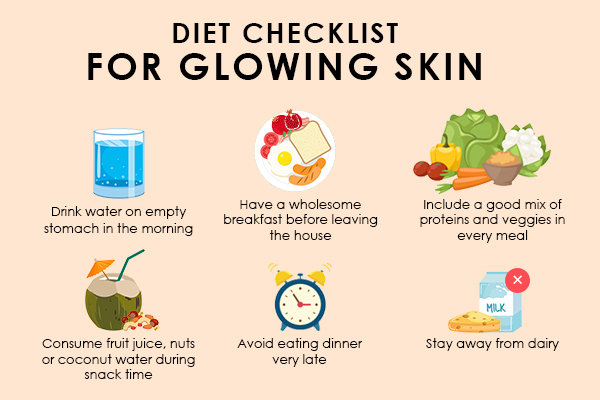Maintaining healthy skin in the summer requires a combination of good skincare habits and a nutritious diet. Foods you eat can significantly impact skin’s appearance and health. Here are some tips on what to eat during the summer to keep your skin glowing and healthy.
1. Stay Hydrated with Water-Rich Foods
Staying hydrated is crucial for healthy skin, especially during hot summer months. Eating water-rich fruits and vegetables like watermelon, cucumbers, oranges, and strawberries can help keep your skin hydrated. These foods not only refreshing but also packed with essential vitamins and minerals.

2. Load Up on Antioxidant-Rich Berries
Berries, such as blueberries, strawberries, and raspberries, are rich in antioxidants. Antioxidants help protect your skin from damage caused by free radicals, which can lead premature aging. Incorporate these delicious berries into your diet by adding them to smoothies, salads, or yogurt.
3. Eat Omega-3 Rich Foods
Omega-3 fatty acids are essential for maintaining skin. They help reduce inflammation and keep the skin’s lipid barrier intact. Foods rich in omega-3s include fatty fish like salmon, mackerel, and sardines, as well as flaxseeds, chia seeds, and walnuts. Including these foods in your diet can help keep your skin smooth and supple.
4. Enjoy Tropical Fruits
Tropical fruits like mangoes, pineapples, and papayas are not only delicious but also beneficial for your skin. Mangoes are rich in vitamin A, which helps repair and maintain skin cells. Pineapples contain bromelain, an enzyme that helps exfoliate dead skin cells. Papayas are packed with vitamin C and antioxidants that help brighten your skin.
5. Include Leafy Greens
Leafy greens such as spinach, kale, and Swiss chard are excellent sources of vitamins and minerals that promote healthy skin. These greens are rich in vitamins A, C, and E, which help protect the skin from sun damage and promote collagen production. Adding a variety of leafy greens to your salads, smoothies, or meals can provide your skin with the nutrients it needs.

6. Snack on Nuts and Seeds
Nuts and seeds are great sources of healthy fats, vitamins, and minerals. Almonds, for example, are rich in vitamin E, which helps protect the skin from UV damage. Sunflower seeds are packed with zinc, which helps maintain skin health and reduce inflammation. Snacking on a handful of nuts and seeds each day can help nourish your skin from within.
7. Choose Citrus Fruits
Citrus fruits like oranges and lemons Grapes are high in vitamin C. Vitamin C is essential for collagen production and which helps keep your skin firm and youthful. Additionally, the natural acids in citrus fruits can help exfoliate and brighten your skin. Start your day with a glass of fresh orange juice or add lemon to your water for a refreshing boost.
8. Opt for Whole Grains
Whole grains such as oats, brown rice, and quinoa are rich in fiber, which aids in digestion and helps remove toxins from the body. They also provide essential nutrients like B vitamins and minerals that promote healthy skin. Incorporating whole grains into your diet can help improve your skin’s overall appearance and health.
Conclusion
Eating a balanced diet rich in fruits, vegetables, healthy fats, and whole grains can have a significant impact on your skin’s health, especially during the summer. By staying hydrated and choosing nutrient-dense foods, you can keep your skin looking radiant and healthy all season long.
FAQs
1. How much water should I drink in the summer for healthy skin?
Aim drink at least 8-10 glasses of water a day. Staying hydrated is crucial for maintaining healthy skin, especially in hot weather.
2. Can eating fruits and vegetables really improve my skin?
Yes, fruits and vegetables are packed with vitamins, minerals, and antioxidants that can improve your skin’s health and appearance.
3. Are there any specific foods I should avoid for better skin in the summer?
Try to limit sugary snacks, processed foods, and excessive amounts of dairy, as they can contribute to skin issues like acne.
4. Can I apply fruits directly to my skin for benefits?
Yes, many fruits like papaya, cucumber, and avocado can be used in DIY face masks for added skin benefits. Always do a patch test first to ensure you don’t have an allergic reaction.
5. How often should I eat these skin-friendly foods to see results?
Incorporating these foods into your daily diet can provide ongoing benefits for your skin. Consistency is key for long-term results.